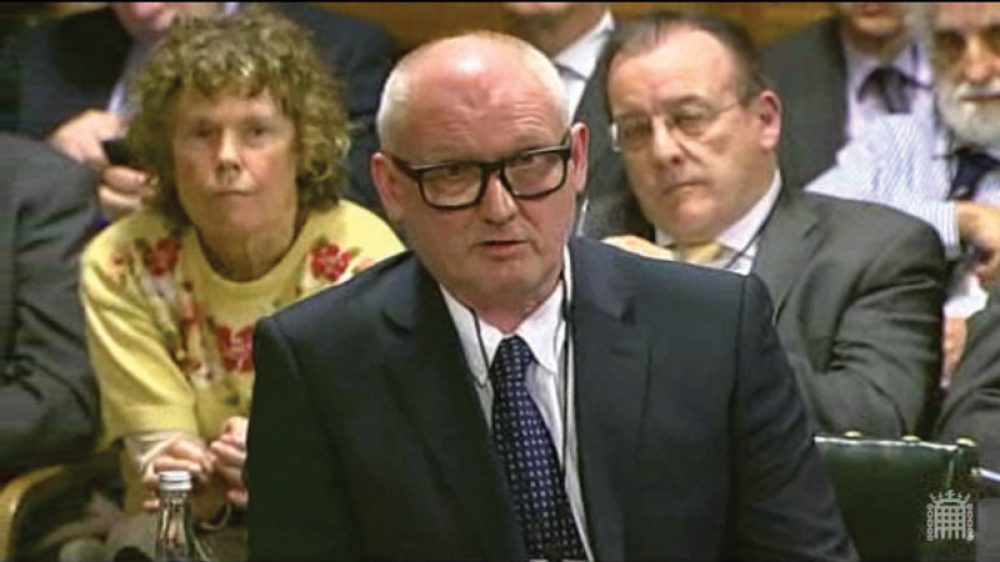An academy trust set to have its funding axed by the government has hit back – blasting department officials for “waging a campaign” against the school, and has vowed to fight any “slur” on the trust or its staff.
The Education Funding Agency issued Durand Academy Trust with a notice of intention to terminate its funding agreement yesterday, claiming the trust has failed to comply with six of eight requirements set out in an earlier warning.
Now the trust has responded, claiming the government has waged a campaign against the school that has been “been characterised by misrepresentation, half truths and inaccuracies”.
A statement, released last night, read: “The academy feels today’s action is motivated not by a desire to see the best for the children in the academy’s care, but by personal and political discomfort at an academy fulfilling it’s remit – i.e. providing educational excellence at the same time as financial security.” 
In July, the trust – championed by former education secretary Michael Gove (pictured right) – was told to address concerns over finances and potential conflicts of interest and sever ties with its chair of governors and former executive head, Sir Greg Martin (pictured).
However, as revealed by Schools Week, the trust refused to meet all the conditions.
The statement added: “The academy stands by it’s ex-head, Sir Greg Martin (who was knighted for his services to education) and will fight today’s EFA decision, and any slur on Martin’s character or good name, as well as the character and good name of the academy and any of the staff involved who are dedicated to the education of their pupils, as a matter of principle.”
Martin, who resigned as head last year, faced criticism from MPs after it emerged he was paid more than £400,000 in salary from the school and management fees from London Horizons, which runs the school’s leisure facilities on a commercial basis.
He also ran a dating agency with the company registered at the school’s address.
But the trust claimed academies should be able to make a profit, and use the cash as they see fit to improve facilities for pupils.
Durand Academy will continue to fight this decision
“Durand Academy will continue to fight this decision as we feel strongly that unless we are vindicated the future education of this country’s children will suffer and that the principle must be established that a self-governing academy has the right to make a profit and surpluses for the benefit of the children in its care and to use this profit and surpluses as it sees fit to improve the facilities on offer to its children and their local community.
“It is through this philosophy that Durand has been able to found and fund the country’s only free state boarding school which is offered for the use of all its pupils.”
Most of the government’s original demands related to the structure of the trust and conflicts of interest surrounding its association with several other organisations.
They included Durand Education Trust, which owns land occupied by Durand Academy in Lambeth and has been under investigation by the Charity Commission, and London Horizons Limited, which runs the school’s leisure facilities on a commercial basis.
Mark McLaughlin, the trust’s interim executive headteacher, previously told Schools Week that Durand Education Trust would meet a condition to transfer back £1.8 million to the academy trust, as long as the EFA gave reassurances it would not confiscate the cash.
The termination letter gives the trust a year’s notice, after which the government can either find a new sponsor or close the school.








I completely agree with DAT’s statement that “a self-governing academy has the right to make a profit and surpluses for the benefit of the children in its care and to use this profit and surpluses as it sees fit to improve the facilities on offer to its children and their local”. Indeed I would argue that this is a positive duty rather than a right.
However I’m not quite sure (being careful with my language!) how this squares with the Trust CEO being paid £160,000 from the company that runs the school’s leisure facilities – to my simple mind this means this £160,000 WOULDN’T be used to improve the school facilities.
If a Trust feels their CEO deserves £400k, do what Harris Federation does and make it clear and transparent – BTW there will be, and should be, a lot of justification that needs to follow.
The problem here is the apparent obfuscation between the two different sources of income. Trying to change the problem into claiming people are against Academy Trusts making profit to reinvest doesn’t really wash.
[If I had a lawyer I’m sure he’d tell me to say that of course I’m not saying, inferring or otherwise implying anything negative about Greg Martin]
And whose money will they be fighting this with? Ours?
That’s a good point. (Although technically it’s not your money, it’s the DAT pupils’ money – which probably makes it worse.)
Academy Trusts are charities, and therefore DAT’s use of its assets to fight this case should be subject to careful review to check they are being used in compliance with charitable law. The most obvious relevant duties are acting in the best interests of the charity and in compliance with their charitable objects.
The problem is that their principal regulator is not the Charity Commission but instead is the Secretary of State for Education, essentially the body that DAT is in dispute with. A pretty classic case of conflict of interest.
The sensible thing would seem to be for the SoS to refer the question of whether DAT’s actions are acceptable to the Charity Commission.
Given that this looks like a case of throwing good money after bad by DAT something should be done …
Academy trusts are publicly funded charities that should focus on their primary objective of education rather than being distracted by income generation whatever justification they might give to such activity.
If an academy trust has a ‘publicly funded’ leisure centre, sports pitches etc. which lie unused at weekend and during holidays then not doing something with it during these times could be seen as wasting the public investment.
If they can generate a surplus from renting out these facilities then that is money which can go back into the education of the children. This could mean more books, new computers, an additional teacher etc.
It’s important that this is not used as a mechanism for extracting money into private hands, as is alleged in the DAT scenario, but this is not an excuse for schools to do nothing and waste their assets.